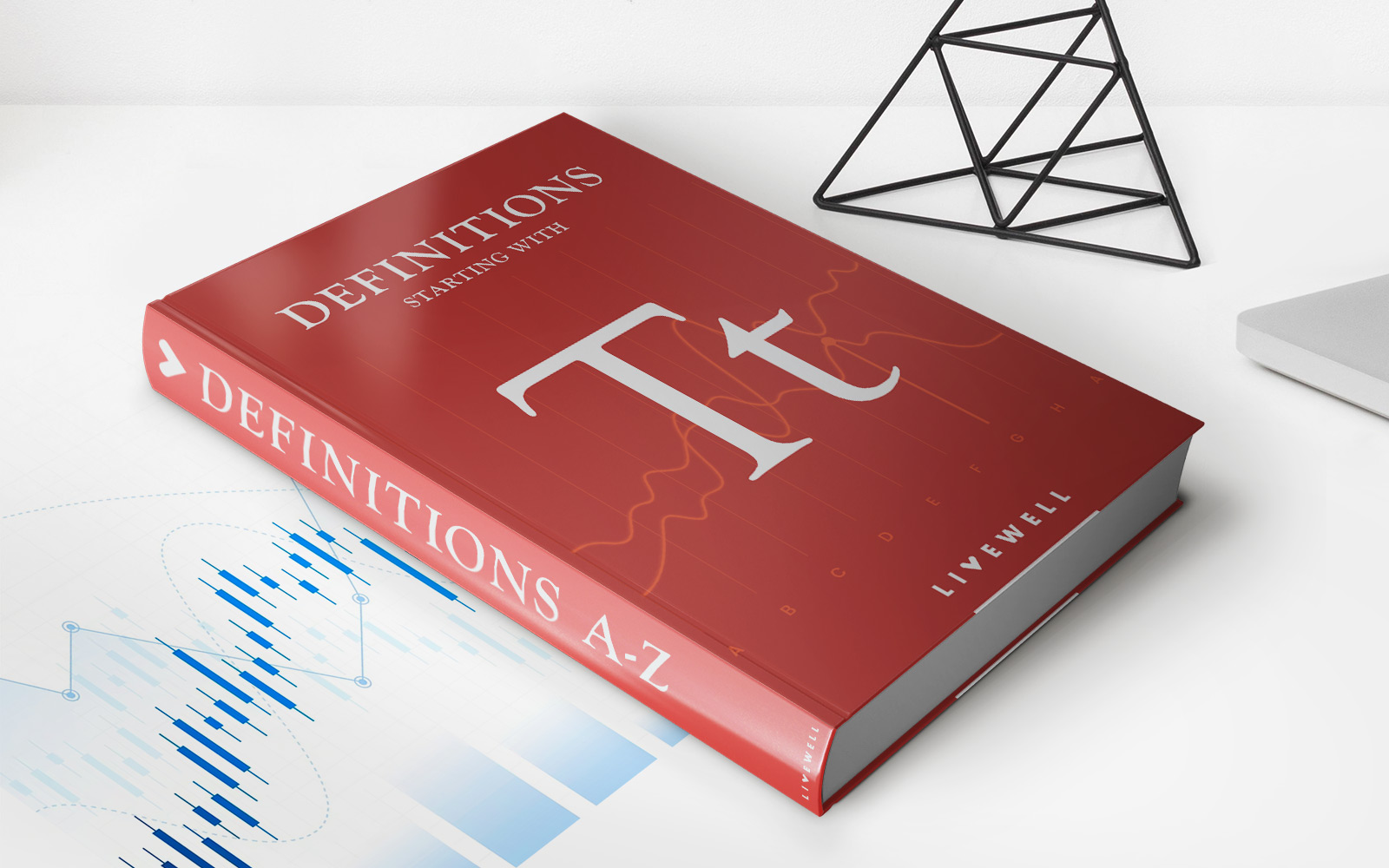Home>Finance>What Happens When You Don’t Put Minimum Payment On Credit Card


Finance
What Happens When You Don’t Put Minimum Payment On Credit Card
Published: February 25, 2024
Learn the consequences of not making the minimum payment on your credit card and how it can impact your finances. Understand the potential risks and implications for your financial well-being.
(Many of the links in this article redirect to a specific reviewed product. Your purchase of these products through affiliate links helps to generate commission for LiveWell, at no extra cost. Learn more)
Table of Contents
Introduction
Understanding the Importance of Making Minimum Payments on Credit Cards
When it comes to managing your finances, credit cards can be both a convenience and a source of potential financial strain. While the allure of making purchases with the promise of deferred payment can be tempting, it’s crucial to understand the responsibilities that come with using credit cards. One of these responsibilities is ensuring that you make at least the minimum payment on your credit card each month. Failing to do so can have serious consequences that may impact your financial well-being in the long run.
In this article, we’ll delve into the implications of not making the minimum payment on your credit card. From the immediate effects on your credit score to the potential long-term repercussions, we’ll explore the various aspects of this issue and provide insights into managing credit card debt effectively. By understanding the significance of meeting your minimum payment obligations, you can take proactive steps to maintain financial stability and make informed decisions regarding your credit card usage.
What is the minimum payment on a credit card?
When you receive your credit card statement each month, it includes a minimum payment amount that you are required to pay by a specified due date. This minimum payment is typically calculated as a percentage of your total outstanding balance, often ranging from 1% to 3% of the balance, with a minimum dollar amount, such as $25. While paying only the minimum may seem like a manageable option, it’s essential to recognize that doing so can lead to long-term financial challenges due to accruing interest and extended repayment periods.
By making only the minimum payment, you carry forward the remaining balance to the next billing cycle, subjecting it to interest charges. This can result in a cycle of debt accumulation, making it increasingly difficult to pay off the balance in full. Additionally, failing to meet the minimum payment requirement can trigger late fees and negatively impact your credit score, further exacerbating the financial implications of not managing your credit card obligations responsibly.
Consequences of not making the minimum payment
When you neglect to make the minimum payment on your credit card, you may face a cascade of adverse consequences that can significantly impact your financial well-being. These repercussions extend beyond the immediate financial penalties and can have lasting effects on your credit history and overall financial stability.
One of the primary consequences of failing to make the minimum payment is the imposition of late fees by the credit card issuer. These fees can range from a fixed amount to a percentage of the overdue balance, further exacerbating the financial burden associated with the missed payment. Moreover, late payments are reported to credit bureaus, leading to a negative impact on your credit score. A lower credit score can hinder your ability to secure favorable terms for future loans, mortgages, or even new credit card applications.
Furthermore, the accumulation of missed payments can result in the initiation of debt collection efforts by the credit card company. This may involve persistent calls from collection agencies, potential legal actions, and the issuance of formal notices demanding payment. Such actions not only add stress and anxiety but also tarnish your financial reputation, making it challenging to access credit in the future.
Additionally, the compounding effect of unpaid balances and accruing interest can lead to a cycle of debt that becomes increasingly challenging to break free from. As interest continues to accumulate on the unpaid balance, the overall debt burden grows, making it harder to regain control of your financial situation.
By understanding the far-reaching consequences of not meeting the minimum payment obligations on your credit card, you can take proactive steps to avoid these pitfalls and maintain a healthy financial standing.
Impact on credit score
When you fail to make the minimum payment on your credit card, the repercussions can extend to your credit score, which is a crucial factor in determining your creditworthiness. Your credit score is a numerical representation of your credit history and reflects your ability to manage credit responsibly. As such, missed payments, including the failure to meet the minimum payment requirement, can have a detrimental effect on your credit score.
One of the key components of your credit score is your payment history, which accounts for a significant portion of the overall score. Timely payments demonstrate reliability and financial responsibility, positively influencing your credit score. Conversely, missed or late payments, including those related to credit card minimum payments, can result in a lower credit score.
A lower credit score can have far-reaching implications, impacting your ability to secure favorable interest rates on loans, obtain new lines of credit, or even pass certain background checks conducted by potential employers or landlords. Additionally, a diminished credit score may lead to higher insurance premiums and increased security deposits for various services, further straining your financial resources.
Furthermore, the negative impact on your credit score is not limited to the immediate aftermath of the missed payment. Late payments and their associated repercussions can remain on your credit report for an extended period, potentially affecting your creditworthiness for years to come. This underscores the significance of prioritizing timely payments, including meeting the minimum payment obligations on your credit cards.
By recognizing the profound influence of missed credit card payments on your credit score, you can prioritize responsible credit management and take proactive measures to safeguard your financial standing.
Accrued Interest and Fees
When you do not make the minimum payment on your credit card, you not only incur late fees, but you also subject yourself to accruing interest on the unpaid balance. Credit card companies typically apply an Annual Percentage Rate (APR) to any outstanding balance, and this interest is compounded daily. As a result, the longer the balance remains unpaid, the more interest accrues, leading to a higher overall debt burden.
It’s important to recognize that the interest charged on credit card balances can be significantly higher than other forms of borrowing, such as mortgages or personal loans. This compounding interest can quickly escalate the total amount owed, making it increasingly challenging to pay off the debt in a timely manner. Furthermore, the interest continues to accumulate on the outstanding balance, even if you start making payments, prolonging the duration and increasing the cost of repayment.
Additionally, the late fees imposed for not meeting the minimum payment requirement can further exacerbate the financial strain. These fees add to the overall balance owed, compounding the financial burden and making it more difficult to bring the account current. While these fees may seem relatively small in isolation, their cumulative impact, combined with accruing interest, can significantly inflate the total amount owed over time.
By understanding the implications of accruing interest and fees due to missed minimum payments, you can appreciate the urgency of addressing outstanding credit card balances and strive to minimize the long-term financial repercussions.
Potential Legal Action
When you consistently fail to make the minimum payment on your credit card and allow the balance to remain unpaid, you may face the risk of potential legal action by the credit card issuer or third-party collection agencies. While this is an extreme consequence, it underscores the seriousness of neglecting your credit card obligations.
One of the initial steps that credit card companies may take to recover unpaid debts is to engage in persistent communication efforts, including phone calls, letters, and emails, urging you to address the overdue balance. If these attempts prove ineffective, the credit card issuer may escalate the matter by enlisting the services of collection agencies. These agencies may intensify their collection efforts, impacting your peace of mind and adding stress to an already challenging financial situation.
Continued non-payment can lead to the initiation of legal proceedings, culminating in a lawsuit filed against you to recover the outstanding debt. This legal action can result in court judgments, wage garnishment, or liens placed on your assets, further complicating your financial circumstances and potentially leading to long-term repercussions.
Moreover, the legal ramifications of unpaid debts can have enduring effects on your financial well-being, potentially impacting your ability to secure future credit, employment opportunities, or housing arrangements. As such, it is crucial to address any credit card delinquencies proactively and seek viable solutions to prevent the escalation of the situation to potential legal action.
By understanding the potential for legal action resulting from prolonged non-payment of credit card balances, you can take decisive steps to address outstanding debts and avoid the detrimental consequences of legal intervention.
Strategies for Managing Credit Card Debt
Effectively managing credit card debt is essential for maintaining financial stability and avoiding the potential pitfalls associated with missed payments and accruing interest. By implementing proactive strategies, you can take control of your credit card obligations and work towards achieving a debt-free future.
1. Budgeting and Prioritizing Payments: Create a comprehensive budget that allocates funds for essential expenses, debt repayments, and savings. Prioritize making at least the minimum payment on your credit cards to avoid late fees and negative credit reporting.
2. Paying More Than the Minimum: Whenever possible, strive to pay more than the minimum required amount to accelerate the reduction of your credit card balances. By paying more than the minimum, you can minimize the impact of accruing interest and expedite the path to debt freedom.
3. Debt Consolidation: Explore the option of consolidating high-interest credit card balances into a single, lower-interest loan or a balance transfer credit card. This can streamline your debt repayment efforts and potentially reduce the overall interest burden.
4. Seeking Assistance from Credit Counseling Services: Consider engaging the services of reputable credit counseling agencies that can provide personalized guidance on debt management, budgeting, and negotiating with creditors to establish feasible repayment plans.
5. Communicating with Creditors: If you encounter financial hardship that impedes your ability to meet credit card obligations, communicate with your creditors proactively. Many credit card companies offer hardship programs or modified payment plans that can provide temporary relief and prevent the escalation of delinquencies.
6. Avoiding New Credit Card Charges: While focusing on repaying existing credit card debt, refrain from accruing additional charges on your credit cards. Minimizing new expenses can help you concentrate on reducing existing balances without further exacerbating your financial obligations.
By leveraging these strategies and adopting a proactive approach to credit card debt management, you can mitigate the potential consequences of missed payments and interest accrual, paving the way for improved financial well-being and long-term stability.
Conclusion
Understanding the significance of making at least the minimum payment on your credit card is paramount for maintaining financial health and stability. Failing to meet this obligation can lead to a myriad of adverse consequences, including negative impacts on your credit score, accruing interest and fees, potential legal actions, and prolonged debt repayment challenges.
By recognizing the far-reaching implications of not meeting minimum payment requirements, individuals can proactively address their credit card debt and implement effective strategies to mitigate these risks. Prioritizing timely payments, exploring debt consolidation options, and seeking assistance from credit counseling services are pivotal steps in managing credit card debt and regaining control of one’s financial situation.
Furthermore, open communication with creditors and a commitment to responsible financial management can help individuals navigate challenging circumstances and avoid the escalation of delinquencies to potential legal action. By adopting a proactive and disciplined approach to credit card debt management, individuals can work towards achieving a debt-free future and safeguarding their financial well-being.
Ultimately, the conscientious management of credit card debt is integral to fostering financial resilience and ensuring a solid foundation for future financial endeavors. By prioritizing responsible credit usage, timely payments, and informed debt management strategies, individuals can overcome the challenges associated with credit card debt and pave the way for a more secure and stable financial future.














